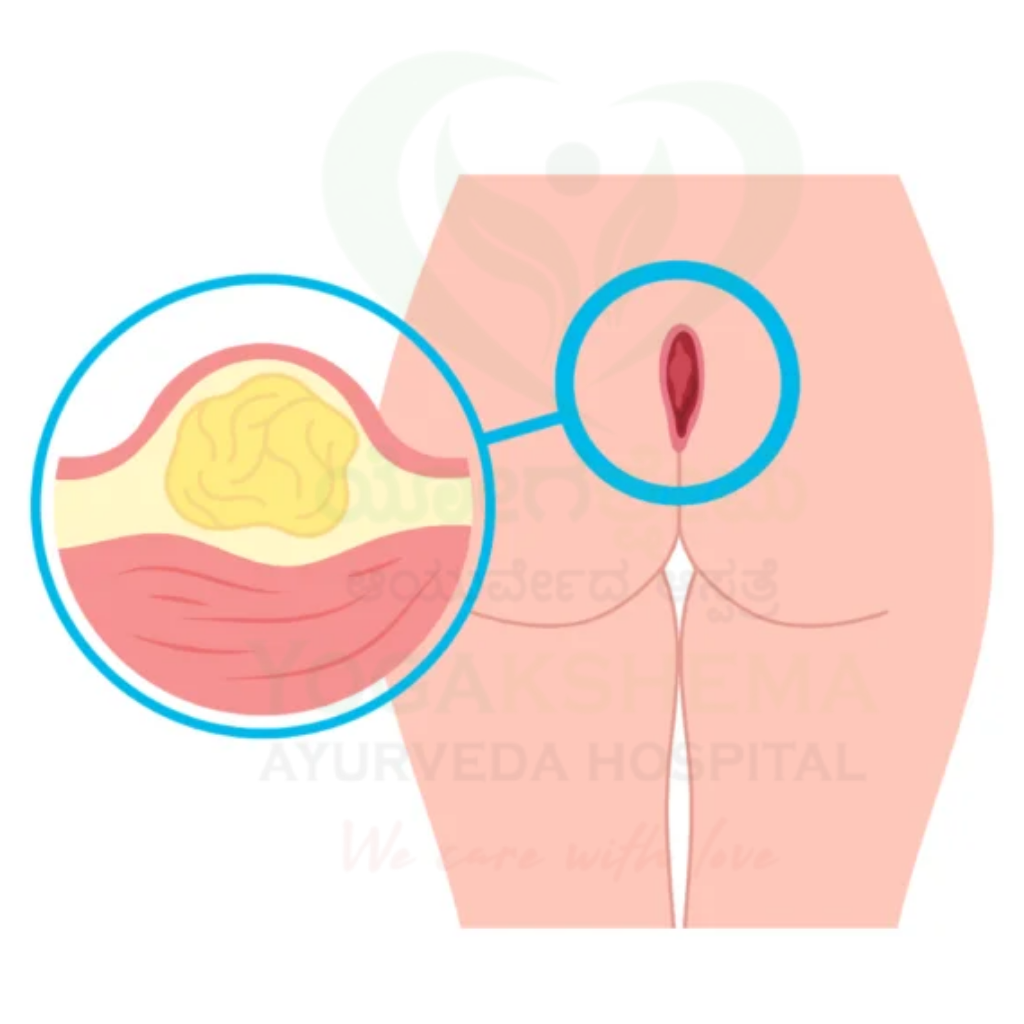Pilonidal Disease

Pilonidal Disease: An Ayurvedic Perspective
Pilonidal disease is a condition where an abscess or cyst forms near the tailbone (coccyx), often containing hair and debris. This can cause pain, swelling, and drainage, significantly affecting comfort and mobility.
Ayurvedic Perspective
According to Ayurveda, pilonidal disease results from an imbalance of Vata and Kapha doshas:
- Vata Imbalance – Leads to dryness, roughened tissues, and poor circulation, making the area prone to ingrown hairs and inflammation.
- Kapha Imbalance – Causes fluid accumulation, cyst formation, and abscess development.
Signs & Symptoms
- Pain and tenderness – Localized discomfort around the tailbone.
- Swelling and redness – The affected area appears inflamed.
- Drainage – Pus or blood may be discharged from the cyst.
- Fever – May occur in cases of infection.
Ayurvedic Management of Pilonidal Disease
Ayurveda provides a comprehensive treatment approach by targeting the root cause, detoxifying the body, and promoting natural healing.
1. Detoxification & Healing Therapies
- Langhana – A light, easy-to-digest diet to reduce digestive burden.
- Snehana – Oil massage to reduce inflammation and improve blood circulation.
- Swedana – Herbal steam therapy to aid detoxification.
- Virechana – Gentle purgation therapy to eliminate toxins.
2. Herbal Medications
- Turmeric (Haridra) – Reduces inflammation and prevents infection.
- Neem (Nimba) – A natural antiseptic that supports wound healing.
- Licorice (Yashtimadhu) – Soothes irritation and promotes tissue repair.
3. Lifestyle Modifications
- Maintain proper hygiene to prevent infections.
- Avoid prolonged sitting or standing to reduce pressure on the affected area.
- Maintain a healthy weight to prevent recurrence.
- Engage in regular exercise and stress management practices like yoga.
Ayurvedic Surgical Procedures for Pilonidal Disease
In cases where conservative treatments are not sufficient, Ayurveda offers minimally invasive surgical procedures:
- Bhedana (Incision & Drainage) – In cases of abscess formation, Bhedana is performed to drain pus, followed by proper wound care and medicated dressings.
- Kshara Sutra Therapy – A medicated thread technique used to promote gradual healing, prevent recurrence, and minimize scarring.
Why Choose Yogakshema Ayurveda Hospital?
At Yogakshema Ayurveda Hospital, we provide personalized Ayurvedic treatment plans for pilonidal disease, integrating traditional therapies with modern diagnostics for effective and long-term healing.
Under the expert guidance of Dr. Shyam Prasad P.S., an Ayurveda General Surgeon with 17+ years of experience, our approach includes:
✔ Thorough assessment & customized treatment plans
✔ Integration of Ayurvedic therapies with surgical interventions like Bhedana, if necessary
✔ Comprehensive post-operative care for faster recovery and recurrence prevention
